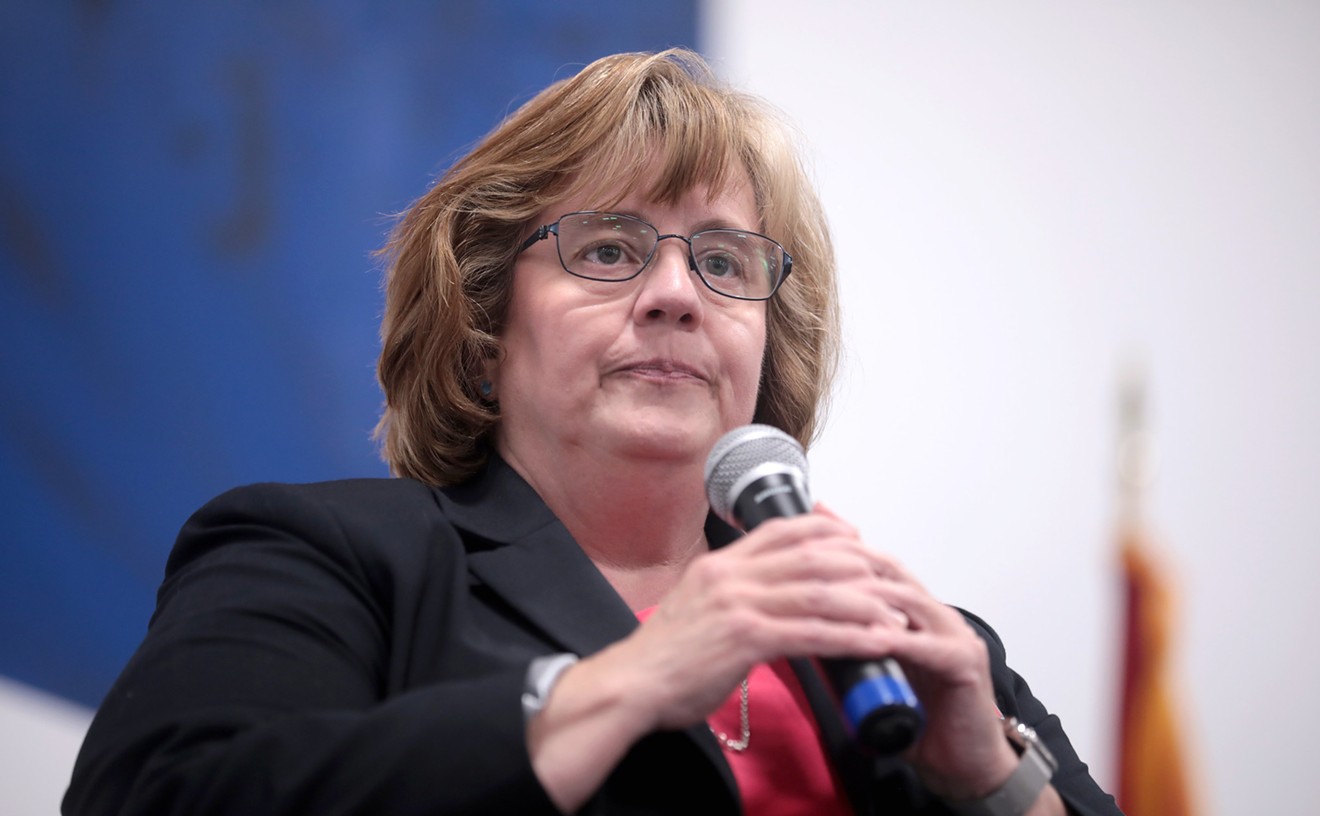The Pinal County Board of Supervisors will hold a meeting next month to consider raising taxes to fund a multimillion-dollar purchase of land for would-be electric-car maker Lucid Motors.
The estimated financing cost for the land is $73.4 million: $31.8 million in principal, plus $41.6 million in interest. But Pinal County spokesman Joe Pyritz says the interest figure is a required disclosure that is based on a 30-year loan. Pyritz says the county expects that it would lease the land it acquires, then sell it in five years for at least what it paid, capping the interest at about $4 million and the total payout at about $35 million.
Technically speaking, county officials can't say the land — about 500 acres of prime commercial real estate near Thornton and Peters roads in Casa Grande — is for Lucid Motors, Pyritz says. But it's the same land Pinal officials have previously said would be the future home for the company's planned $700 million production plant. Ostensibly, then, Lucid Motors would lease the land and likely buy it later.
Governor Doug Ducey and Claudia Pavlovich, the governor of Sonora, Mexico, revealed plans for the plant in a major announcement at the state capitol last month, calling it a significant economic boon for both Arizona and Mexico.
The Chinese-backed Silicon Valley company (which changed its name in October from Atieva) aims to build the first phases of the factory next year, hoping to begin producing all-electric sedans as soon as 2018. By 2022, Arizona officials said, the assembly plant would add about 2,000 jobs for the state. Mexican workers will produce parts for the cars at a separate facility in Sonora.
The project involves a significant amount of corporate welfare. Besides the Pinal land deal, Lucid Motors will attempt to collect up to $46.5 million over the next five years in various subsidies offered by the state through the Arizona Commerce Authority.
The five Pinal County supervisors will discuss the possible land purchase and how it will be funded on January 4 at their regular meeting in Florence. The goal is to a produce a resolution of intent for the agreement, to be voted on no later than January 19.
The supervisors will likely consider either a property- or sales-tax hike to pay for the land, Pyritz says. If they decide on a tax increase, he says, the new tax would only cover the land deal and would end once the tax funding reimburses the county for the purchase cost.
"We won't make or lose money" on the deal, Pyritz says.
Pinal County asks the public to comment on the issue at the hearing or via e-mail: [email protected].
Susan Marie, spokeswoman for the Arizona Commerce Authority, emphasizes that while Lucid Motors could receive $46.5 million from the state, the company won't get the money all at once and must first meet various goals.
The subsidy would break down as follows:
• $5 million in grant money over five years, dependent on meeting specified job-creation and capital-investment milestones.
• $1.5 million in grant money for job training. The company would pay for the cost of training employees and the state would reimburse 75 percent of the cost over two years.
• $40 million in refundable tax credits under the Qualified Facility Tax Credit Program the legislature created in 2012. The law allows companies to collect 10 percent of the qualifying capital investment (in this case Lucid's planned $700 million over five years), or $20,000 per qualifying job, whichever is less. If the company creates 2,000 jobs, that would be $40 million. The law doesn't allow companies to collect more than $30 million in tax credits in a single year, so Lucid would have to make two separate applications for the funds over at least two years.
Marie points out that even if Lucid Motors obtains the maximum possible amount, the subsidy would fall far short of the $335 million in tax credits Nevada promised to Faraday Futures, another Chinese-backed electric-car firm. This past week, Nevada authorities revealed they cut the deal without looking at Faraday Futures' financial statements. The company stopped work on its planned $1 billion plant in Nevada last month, reportedly owing to financial problems.
The potential Arizona subsidy is also far less than the $1.3 billion Nevada promised to Tesla for its Gigafactory. Tesla, of course, already produces popular products.
Lucid Motors claims that it will produce superior driving machines people will clamor for: all-electric four-door sedans that would be luxurious, ultra-quick, and offer more miles per charge than Teslas.
Last week the company unveiled the car it expects to take on Tesla: the Air, a 1,000-horsepower vehicle with a 400-mile range, powered by a 130-kilowatt-hour Samsung battery. Projected sticker price: about $160,000.
[
{
"name": "Air - MediumRectangle - Inline Content - Mobile Display Size",
"component": "18478561",
"insertPoint": "2",
"requiredCountToDisplay": "2"
},{
"name": "Editor Picks",
"component": "16759093",
"insertPoint": "4",
"requiredCountToDisplay": "1"
},{
"name": "Inline Links",
"component": "17980324",
"insertPoint": "8th",
"startingPoint": 8,
"requiredCountToDisplay": "7",
"maxInsertions": 25
},{
"name": "Air - MediumRectangle - Combo - Inline Content",
"component": "16759092",
"insertPoint": "8th",
"startingPoint": 8,
"requiredCountToDisplay": "7",
"maxInsertions": 25
},{
"name": "Inline Links",
"component": "17980324",
"insertPoint": "8th",
"startingPoint": 12,
"requiredCountToDisplay": "11",
"maxInsertions": 24
},{
"name": "Air - Leaderboard Tower - Combo - Inline Content",
"component": "16759094",
"insertPoint": "8th",
"startingPoint": 12,
"requiredCountToDisplay": "11",
"maxInsertions": 24
}
]











